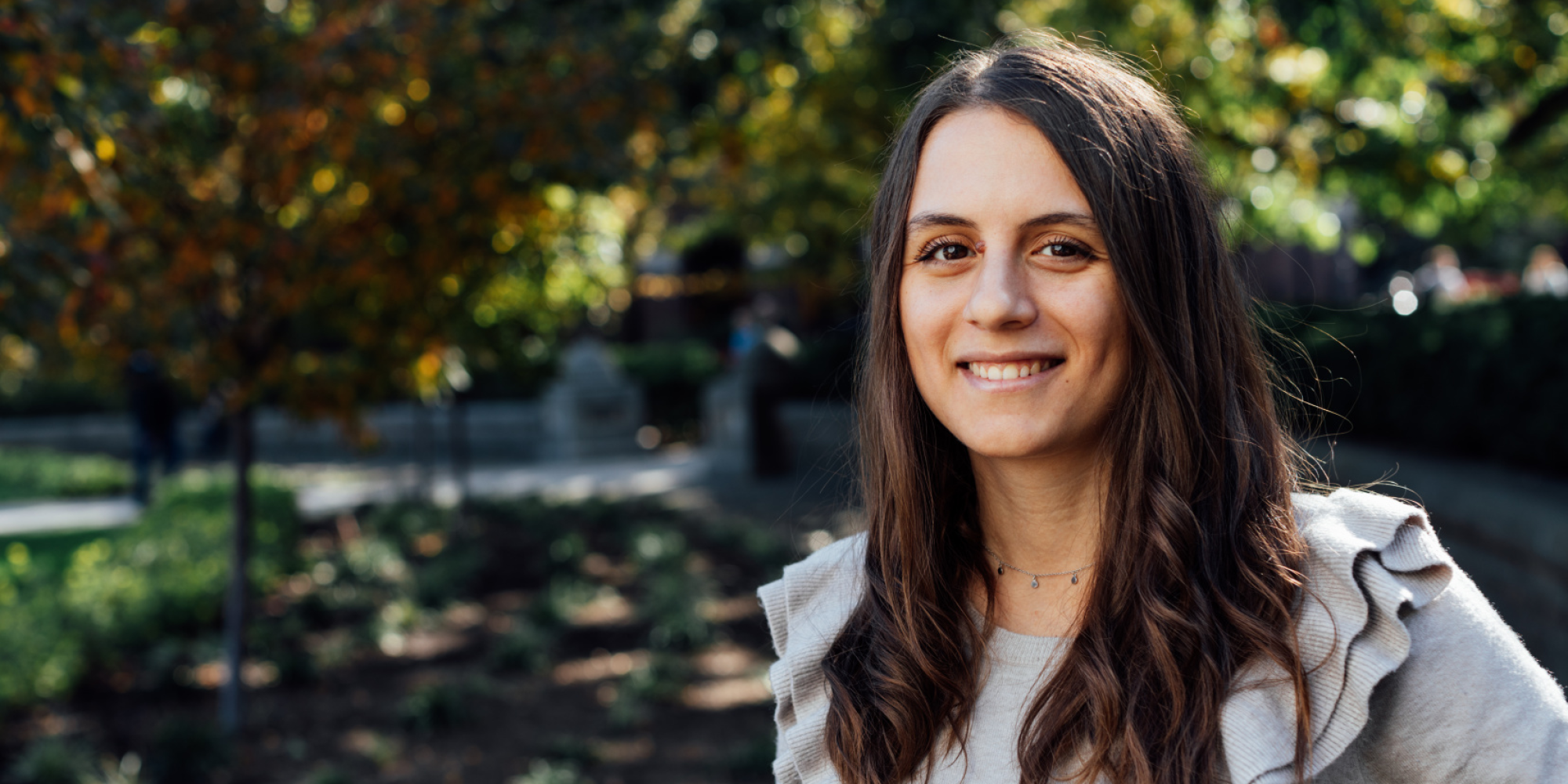Purdue CS PhD Candidate Beatrice Bevilacqua Named MIT Rising Star
11-15-2024

Beatrice Bevilacqua, MIT Rising Star
Beatrice Bevilacqua, a PhD candidate in computer science at Purdue University, was recently honored as an MIT Rising Star in Electrical Engineering and Computer Science (ECCS). Under the guidance of her advisor, Professor Bruno Ribeiro, Bevilacqua’s work in Graph Neural Networks (GNNs) has attracted attention for its potential to drive progress in the field. Being recognized as a Rising Star, she reflects, is not only an acknowledgment of her achievements but a strong encouragement for her future pursuits in academia.
MIT Rising Stars in EECS
MIT Rising Stars in EECS recognises outstanding graduate students and postdocs of historically marginalized or underrepresented genders, who are interested in pursuing academic careers in electrical engineering, computer science, and artificial intelligence and decision making. Rising Stars attend a two-day intensive workshop at MIT.
Having attended the exclusive Rising Stars in ECCS workshop, Bevilacqua gained invaluable insights into academia and career preparation. The workshop provided a comprehensive look at the higher education job market, covering essential areas such as writing research and teaching statements, navigating job negotiations, and understanding the process of applying for grants and recruiting students. Beyond practical skills, Bevilacqua found the experience inspiring, connecting with mentors and peers who share her passion for research and have overcome similar challenges.
Graph Neural Networks
In her research, Bevilacqua addresses a key limitation of GNNs: their difficulty adapting to new types of graphs and tasks. By developing novel architectures with strong mathematical foundations, she aims to make GNNs more versatile and robust. “GNNs are powerful tools for analyzing complex data structures, from molecular models to social networks,” she explains, “but their adaptability remains limited. My work focuses on creating architectures that expand their practical utility across diverse applications.”
Beatrice Bevilacqua
A native of Rome, Italy, where she grew up near the Vatican Museums, Bevilacqua was drawn to Purdue after participating in the GoBoiler internship program. The supportive academic environment and Purdue’s commitment to research excellence convinced her to pursue her PhD there. In addition to the MIT Rising Stars recognition, she has received Purdue’s Employee Recognition Award (2024), the Andrews PhD Fellowship, and Top Reviewer accolades at NeurIPS in both 2022 and 2023.
With her sights set on a long-term research career, Beatrice is energized by her recent experiences and ready to continue advancing her field. For her, the workshop was not only a milestone but a bridge to future academic contributions, solidifying her journey as a rising star in computing.
About the Department of Computer Science at Purdue University
Founded in 1962, the Department of Computer Science was created to be an innovative base of knowledge in the emerging field of computing as the first degree-awarding program in the United States. The department continues to advance the computer science industry through research. US News & Reports ranks Purdue CS #8 in computer engineering and #19 and #16 and #18 overall in undergraduate and graduate computer science, respectively. Additionally the program is ranked 6th in cybersecurity, 8th in software engineering, 13th in systems, 15th in programming languages and data analytics, and 18th in theory. Graduates of the program are able to solve complex and challenging problems in many fields. Our consistent success in an ever-changing landscape is reflected in the record undergraduate enrollment, increased faculty hiring, innovative research projects, and the creation of new academic programs. The increasing centrality of computer science in academic disciplines and society, and new research activities—centered around foundations and applications of artificial intelligence and machine learning, such as natural language processing, human computer interaction, vision, and robotics, as well as systems and security—are the future focus of the department. cs.purdue.edu